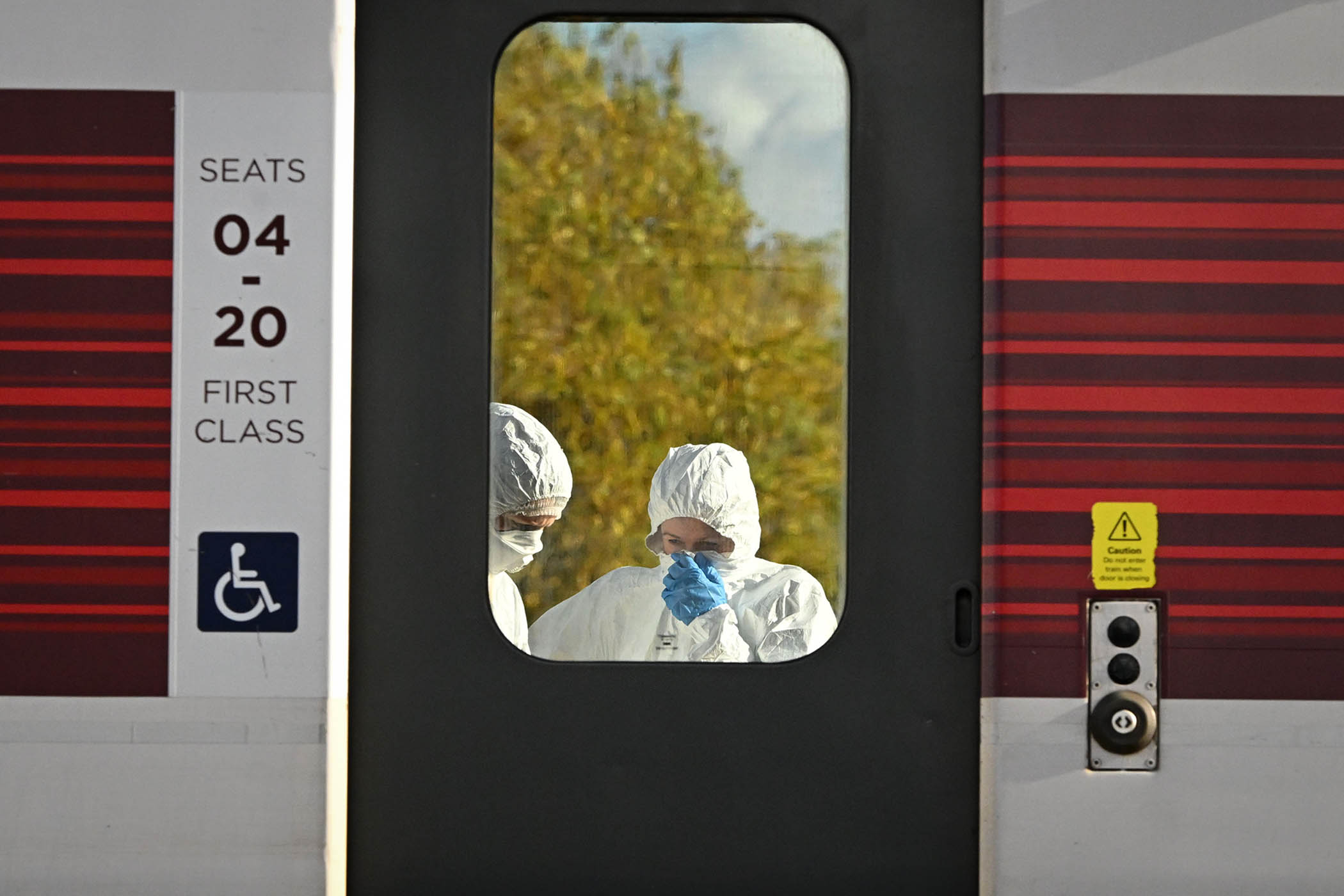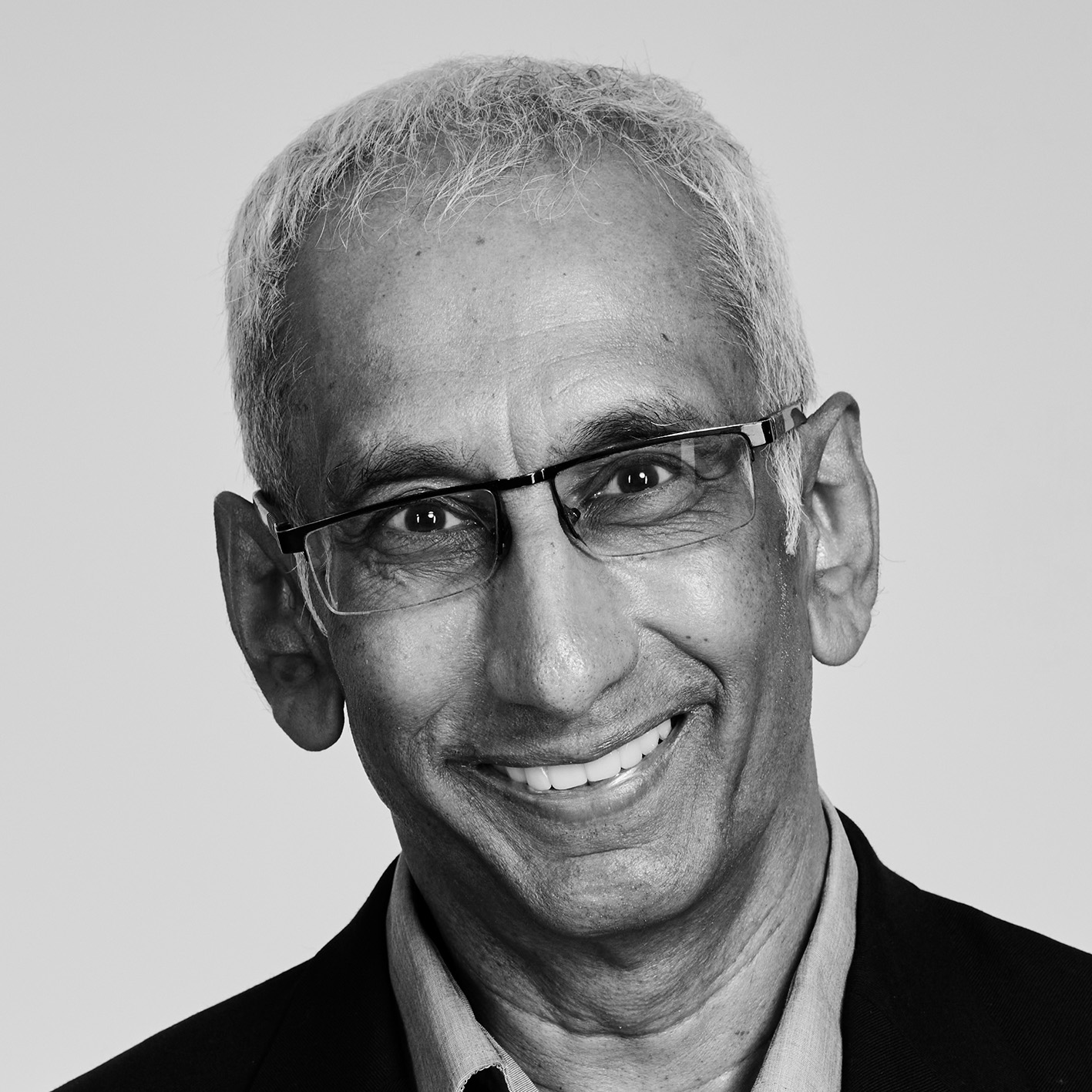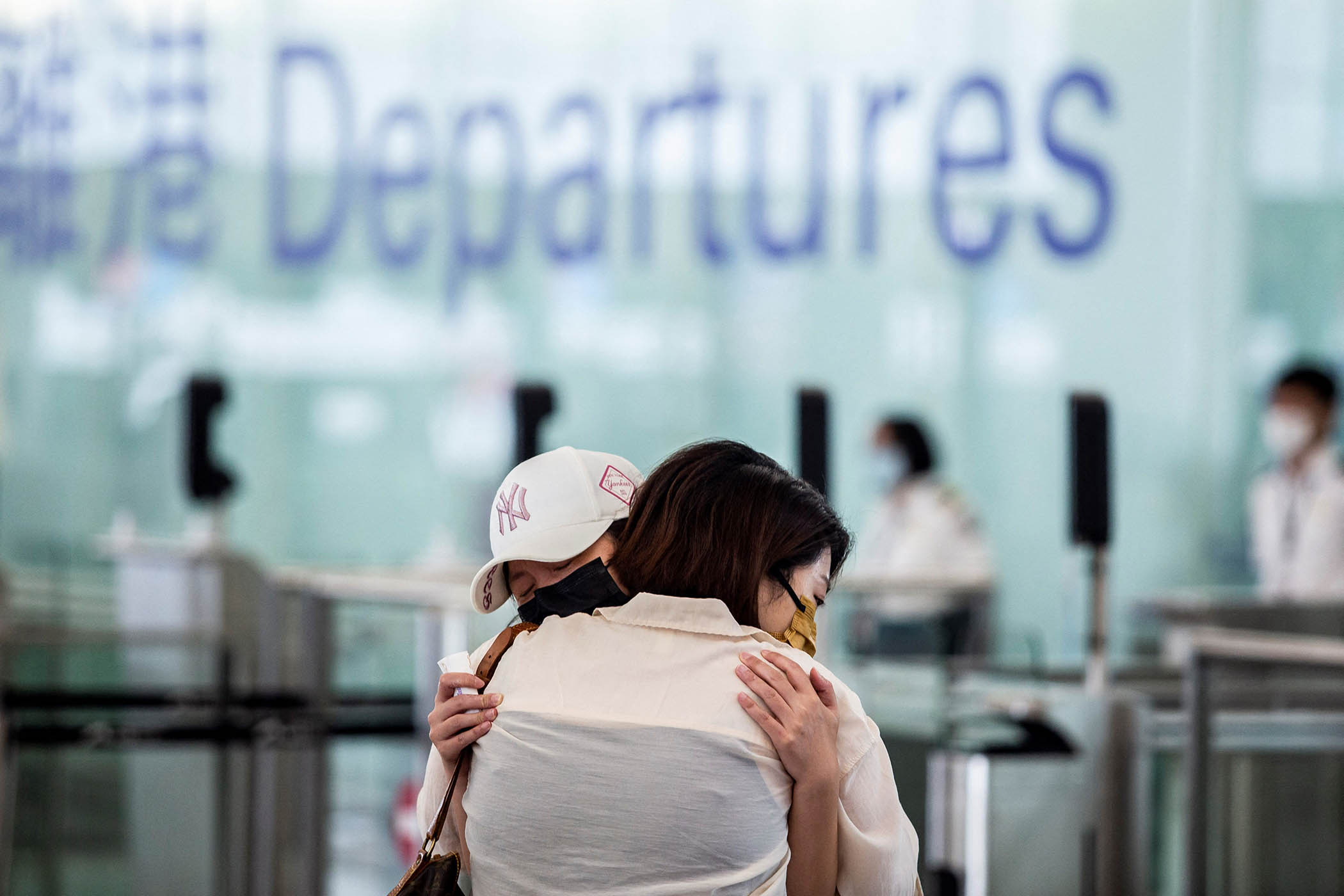Is Britain becoming a more violent nation? “Lawless”, as Nigel Farage insists? The horror of the mass stabbings on an LNER train last week has made that question seem even more urgent.
The answer is both straightforward and complicated. The latest report from the Cardiff Violence Research Group, using data from hospital admissions, concludes that “over the past two and a half decades… serious violence in England and Wales has decreased substantially”. This assessment fits with the findings of the Crime Survey for England and Wales, generally regarded as the best national measure of crime, that incidences of violent crime have fallen by more than 80% since the mid-1990s. Times columnist Fraser Nelson has collated much of the data that shows that while certain forms of crime, such as shoplifting, have soared, violent crime has declined (though there remains considerable debate about whether this is also true of sexual violence).
Nevertheless, there is an element of truth in the arguments of politicians like Farage. They recognise that while the statistics may not support their claims, people’s experiences seem to. YouGov tracking data shows three times as many people see crime as the most important issue facing the country as they did 10 years ago.
The question we need to address, then, is less about statistics than about why people’s experiences seem so different from the story the data tells. Data can capture an aspect of reality, but it cannot comprehend the way people experience that reality, shaped as it is by the wider social context. Three features of today’s social world are particularly important in influencing the way many think about violence and crime.
Data can capture an aspect of reality, but it cannot comprehend the way people experience that reality
Data can capture an aspect of reality, but it cannot comprehend the way people experience that reality
There are, I wrote recently, “two Britains, one of which barely comprehends the challenges facing the other”. Those challenges are wrought by material deprivation, job insecurities, unaffordable housing and the collapse of public services. It is a Britain that feels politically voiceless, and sees the world as being out of control, and something over which it has little say. A Britain that is more atomised and disordered, and in which the state has become incapable of providing citizens with the most basic of protections, or even to ensure that prisoners are not wrongly released. In such a Britain, is it surprising if crime, which itself tears at social order, takes on an exaggerated aspect?
A second feature of the contemporary world shaping the way people think about violence is the increasingly blurred line between ideological violence – terrorism – and sociopathic rage, driven by mental illness. Terrorism today is often, as the French political scientist Olivier Roy observes, more akin to “the American school shooter, who goes to his school heavily armed, indiscriminately kills as many people as possible, then kills himself or lets himself be killed by the police”, than it is to old-fashioned acts of terror, such as those carried out by the IRA or the PLO. Violence is no longer a means to an end but “an end in itself”, a nihilistic desire to cause carnage, distress and pain. Accompanying this has been the rise of “low-tech” terrorism in which not bombs or AK47s but everyday objects such as knives and cars are wielded with murderous intent.
At the same time, the atomisation of society has created cracks within which are spawned rageful, misanthropic individuals, whose issues are often not addressed by an overstretched state system. Many recent incidents, from the killings in Nottingham in 2023 of Barnaby Webber, Grace O’Malley Kumar and Ian Coates by Valdo Calocane to the Southport murders of three young girls in a dance class by Axel Rudakubana, bear witness to this. All this makes any outbreak of public violence appear more terrifying, an expression of an out-of-control Britain.
And, then, there is the attempt by the right to turn every social problem into one of immigration. After last week’s train stabbings, Matthew Goodwin, the academic turned Reform UK advocate, wrote of receiving a text from a friend abroad. “What on earth is happening to your country?”, it asked. “Three words, I replied,” Goodwin wrote. “Mass uncontrolled immigration.”
Related articles:
Immigration status becomes significant when you’re a monster, not a hero
Immigration status becomes significant when you’re a monster, not a hero
We have few details about the alleged stabber Anthony Williams, except that he is black, a British national and born in this country. To claim that the train stabbings were the product of “mass uncontrolled immigration” is to suggest that any black person, even one born in Britain, is the product of “mass uncontrolled immigration”, and should be the object of suspicion as a potential threat.
Those fixated by the immigration background of Williams are not similarly obsessed by that of Samir Zitouni, the Algerian-born train worker hailed as a hero for trying to hold off Williams, and still in hospital in a critical condition. Immigration status becomes significant when you’re a monster but not when you’re a hero.
Newsletters
Choose the newsletters you want to receive
View more
For information about how The Observer protects your data, read our Privacy Policy

LNER staff member Samir Zitouni has been hailed as a hero for trying to protect passengers. He remains in hospital
For many, Williams is not British at all. Goodwin himself described him as “British” in inverted commas: “It takes more than a piece of paper to make somebody ‘British’.” Not an argument he would make about white British criminals. Such obsession with immigration helps create the sense of a pervasive, existential threat, feeding into people’s fears.
The debate about crime is far more than a debate about crime. It has become a lightning rod that, like the immigration debate, captures a wider set of anxieties about a wider set of failures of policymaking and statecraft. As with immigration, until those wider concerns and failures are addressed, the debate will only intensify.
Photograph by Leon Neal/Getty Images, LNER/PA Photo



